
Wagner is becoming an important calling card for Valery Gergiev and the Mariinsky Theatre. After releasing a well-received Parsifal on its recording label in 2010, the St. Petersburg troupe is marking the bicentennial of the composer’s birth with a buzzworthy new Ring cycle culled from a series of performances and recording sessions featuring the likes of Jonas Kaufmann, Rene Pape, Nina Stemme and Anja Kampe.
With that kind of international star power, the set is probably destined for commercial success. For some, it will also add kindling to the debate about Gergiev’s strengths in this repertory.
The 59-year-old maestro’s Wagner performances have evolved over the past decade into darkly intense affairs that ooze melodrama and tend to play up the music’s lyric romanticism. The Mariinsky orchestra has become much more secure in the material over that time, though it still lacks the finesse of some of some other major opera company pit bands.
What remains frustrating is Gergiev’s tendency to undercut the pulse of Wagner’s music in spots by slowing the action to linger on a character’s emotions or some moral dilemma. In the first installment of the cycle, Die Walküre, the drama goes slack and loses focus during a number of Act 2’s narrative sequences before regaining momentum, as if someone’s hit a fast forward button. While the approach yields some interesting portraiture and forces one to really listen to what’s being sung, it dilutes the cumulative effect and gives the performance an odd, inconsistent feel.
Gergiev is hardly the first conductor who’s strayed searching for this music’s deeper meaning. And though he may be guilty of loving some sections to death, he still excels at tapping the raw power and radiant sound of a Wagner orchestra. The opening storm scene is vividly rendered, if a little light on the bass, and the familiar leitmotives sound suitably grand in the hands of the orchestra’s winds. It remains to be seen whether the cycle’s remaining installments, which continue with Das Rheingold in September, will be more organically whole or resemble a patchwork quilt of highlights.
What keeps this performance together is the commitment of the leading vocalists, who use Gergiev’s spacious tempi to capture the sensuous, mystical quality of the music and lend power and authority to the dramatic climaxes. In contrast to the Parsifal release, there are only two Russians in prominent roles: Ekaterina Gubanova, who’s a less-than-imposing Fricka, and Mikhail Petrenko, whose Hunding unspools some lovely legato but doesn’t project nearly enough menace.
In the now familiar role of Siegmund, Kaufmann uses his burnished, baritonal sound to distill the displaced character’s noble qualities. One would be hard-pressed to find a more expressively phrased “Winterstürme,” and Kaufmann’s performance builds in intensity and authority through the exciting Act 1 finale and his Act 2 duet with Brunnhilde. Anyone who was impressed by his recent Met appearances will likely find this reading at least as good, if not a just bit more magisterial.
Kampe is a rising star soprano with keen dramatic sensibilities and mezzo-like shadings who acquits herself well as Sieglinde. The expressive strengths lie more in her robust, well-focused middle and low registers than in her top, which can sound pinched at times. Together, she and Kaufmann make a charismatic couple and turn Act 1 into the highlight of the show.
Stemme, widely regarded as the preeminent Isolde of our times, could very well lay claim to the title belt for Brunnhilde, too. With her ample, polished voice, she captures the character’s transformation from stubborn Valkyre to tenderhearted woman and brings a palpable sense of doom to the Todesverkündigung. Her pleading third act “War es so schmählich” features some gorgeous cantabile singing and enough dramatic thrust to make it sound like her world is breaking apart.
Pape’s Wotan is predictably better here than on his DG Wagner highlights disc with Daniel Barenboim and the Stattskapelle Berlin, and nicely conveys the contrast between the god’s vulnerability and power. His rich voice and effortlessly rendered melodic lines provide an interesting contrast to the rougher, more dramatic delivery of Bryn Terfel. But at least on CD, his technical perfection, scrupulous diction and emphasis on control still make the performance feel reserved, maybe even bland. Pape fails to give enough lift to Gergiev’s dead spots in the middle act and doesn’t quite channel the anguish one would expect from a heartbroken father in the Act 3 Abschied. Perhaps it’s a different story experiencing him live.
The hybrid SACD sound captures the sonics of the new Concert Hall of the Mariinsky Theatre and in an incongruous but interesting twist, places the listener in the middle of the Valkyries during their ride at the beginning of the third act. Four discs come with a 136-page booklet with notes, photographs and the libretto in German and English.
This release could probably merit inclusion in many collections on the strength of the singing alone and unites some major artists at the peaks of their careers. But because the Mariinsky’s identity is so intertwined with Gergiev’s, and because he has made Wagner so essential to the company’s rejuvenated repertory, the cycle will ultimately have to be judged on whether the tireless conductor’s broad vision in this music matches his artistic ambitions.














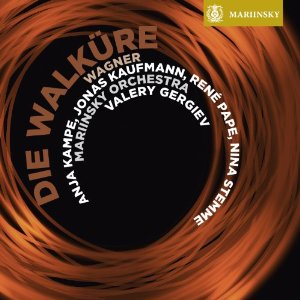
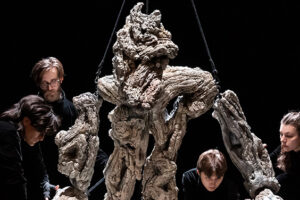
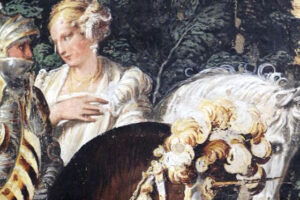
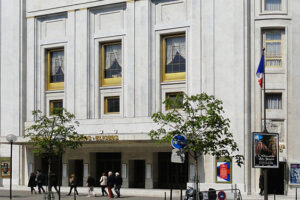
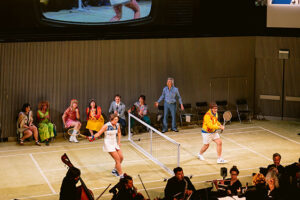






Comments